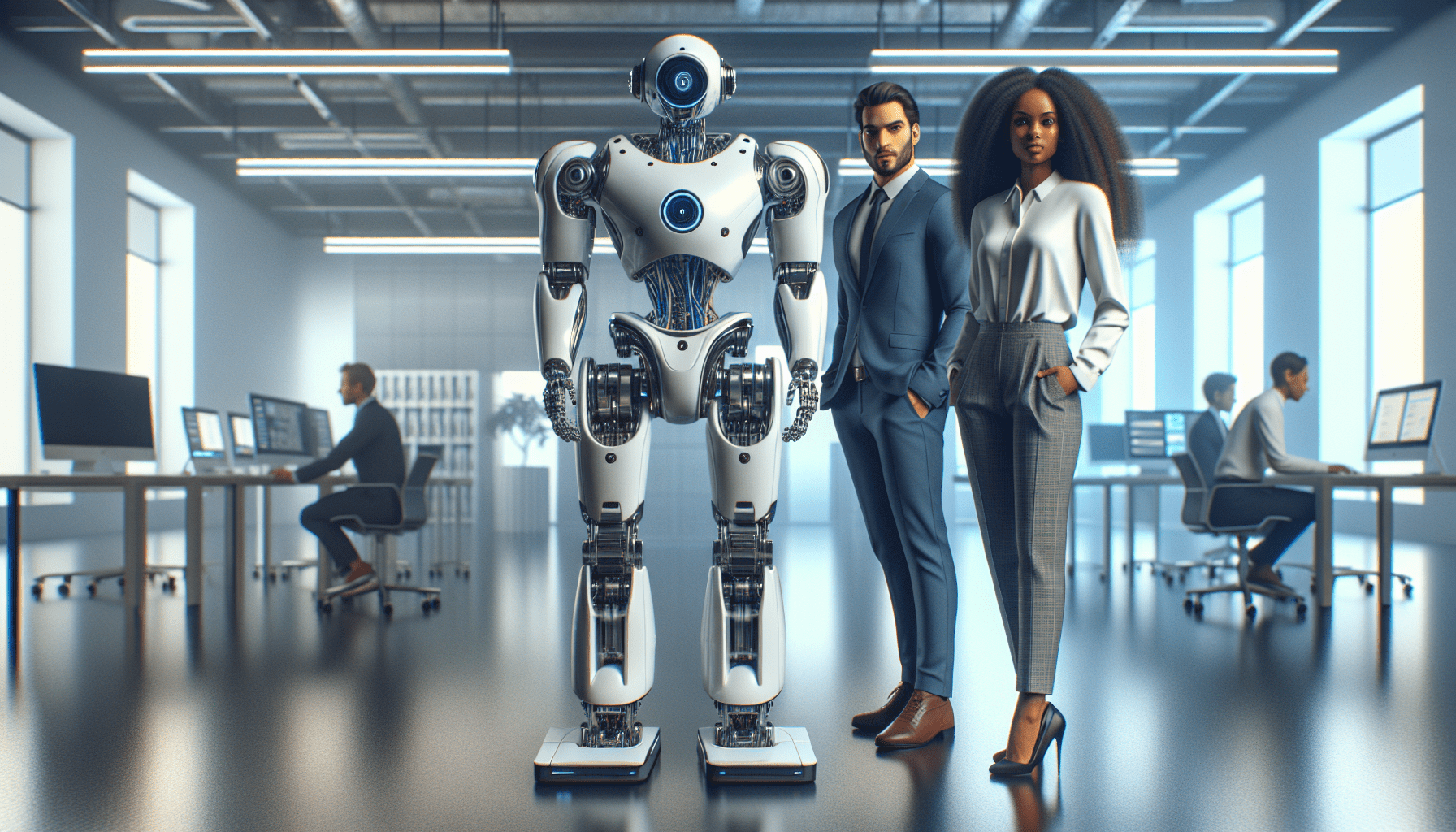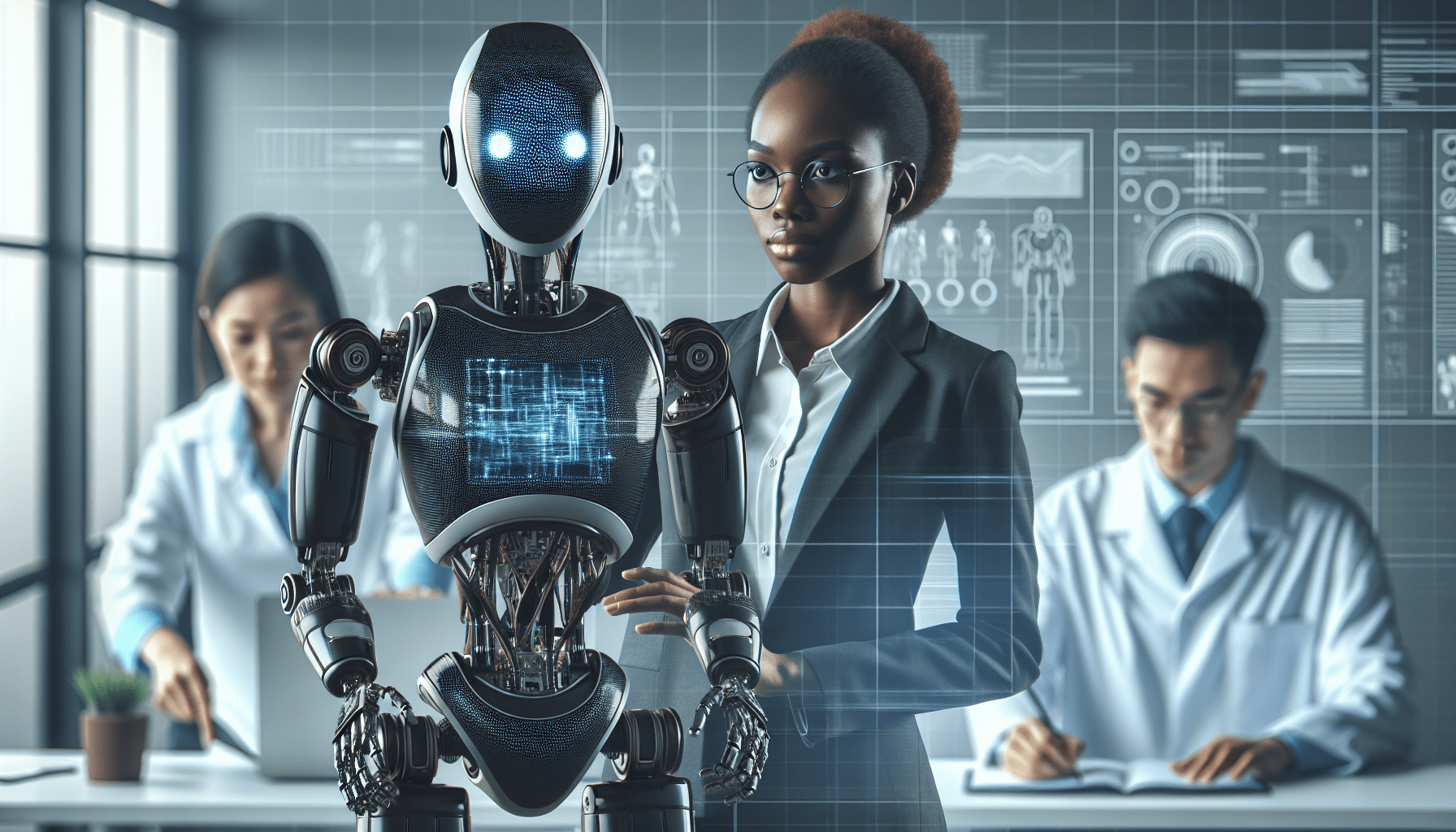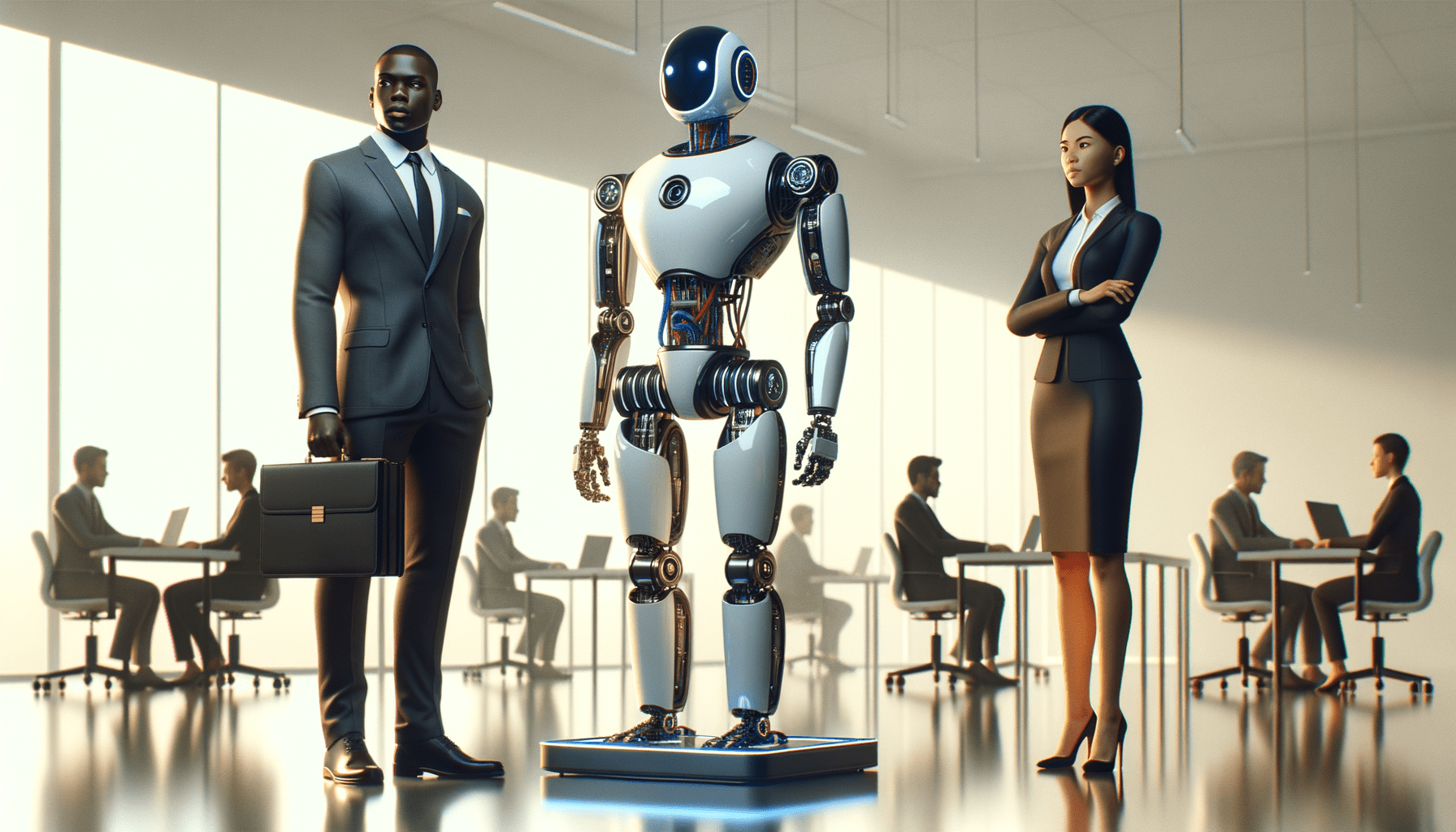Tesla Optimus is making waves in the world of AI robotics, promising to revolutionize business growth. As companies strive to stay ahead in the competitive tech landscape, Tesla’s humanoid robot offers a glimpse into the future of automation and efficiency.
This article delves into the potential of Tesla Optimus, exploring its capabilities, applications, and the impact it could have on businesses worldwide.
Understanding Tesla Optimus: A New Era in Robotics
Tesla Optimus is not just another robot; it’s a sophisticated humanoid designed to perform tasks that are typically repetitive, unsafe, or mundane for humans. With its advanced AI capabilities, Optimus is set to become a valuable asset in various industries. Tesla’s official website provides detailed insights into the robot’s features and potential applications. You can explore more about Tesla’s AI initiatives on their official AI page.
One of the standout features of Tesla Optimus is its ability to integrate seamlessly into existing workflows. This integration is crucial for businesses looking to enhance productivity without overhauling their current systems. The robot’s design allows it to navigate human-centric environments, making it ideal for tasks in manufacturing, logistics, and even customer service.
Moreover, Tesla Optimus is equipped with state-of-the-art sensors and machine-learning algorithms, enabling it to learn and adapt to new tasks over time. This adaptability is a game-changer for businesses that require flexible solutions to meet evolving demands.
Steps to Implement Tesla Optimus in Your Business
For businesses considering the integration of Tesla Optimus, here are some essential steps to ensure a smooth transition:
1. Assess Your Needs
Before implementing Tesla Optimus, evaluate the specific tasks and processes that could benefit from automation. Identify areas where the robot can add the most value, such as repetitive tasks or those requiring precision.
2. Plan the Integration
Develop a comprehensive plan for integrating Tesla Optimus into your existing operations. This plan should include timelines, resource allocation, and potential challenges. Consulting with experts or Tesla representatives can provide valuable insights.
3. Train Your Team
Ensure that your team is well-prepared to work alongside Tesla Optimus. Training sessions should cover the robot’s functionalities, safety protocols, and troubleshooting procedures. A well-informed team will maximize the robot’s potential.
4. Monitor and Optimize
After deployment, continuously monitor the Tesla Optimus’s performance. Gather feedback from your team and make necessary adjustments to optimize its efficiency. Regular maintenance and software updates are also crucial for long-term success.
5. Evaluate ROI
Finally, assess the return on investment (ROI) of implementing Tesla Optimus. Consider factors such as cost savings, productivity improvements, and employee satisfaction. This evaluation will help determine the robot’s overall impact on your business.
Frequently Asked Questions About Tesla Optimus
What industries can benefit from Tesla Optimus?
Tesla Optimus is versatile and can be utilized in various industries, including manufacturing, logistics, healthcare, and retail. Its ability to perform repetitive and precise tasks makes it suitable for environments where efficiency and safety are paramount.
How does Tesla Optimus compare to other humanoid robots?
Tesla Optimus stands out due to its advanced AI capabilities and seamless integration into human-centric environments. While other humanoid robots, like those from Boston Dynamics, focus on agility and mobility, Optimus emphasizes adaptability and task-specific performance.
What are the potential challenges of using Tesla Optimus?
One of the main challenges is ensuring the robot’s reliability and robustness in real-world scenarios. Businesses must also consider the initial investment and the need for ongoing maintenance and updates to keep the robot functioning optimally.
How does Tesla Optimus impact employment?
While Tesla Optimus can automate certain tasks, it also creates opportunities for employees to focus on more strategic and creative roles. The robot’s integration can lead to job transformation rather than job displacement, enhancing overall workforce productivity.
Checklist for Implementing Tesla Optimus
For businesses ready to embrace Tesla Optimus, here’s a detailed checklist to guide the implementation process:
- Identify Key Tasks: Determine which tasks Tesla Optimus will handle, focusing on those that are repetitive, hazardous, or require high precision.
- Develop an Integration Plan: Create a step-by-step plan outlining how Tesla Optimus will be integrated into your operations, including timelines and resource allocation.
- Prepare Your Team: Conduct training sessions to familiarize your team with Tesla Optimus’s functionalities and safety protocols.
- Set Performance Metrics: Establish clear metrics to evaluate Tesla Optimus’s performance, such as task completion rates and error reduction.
- Monitor and Adjust: Continuously monitor Tesla Optimus’s performance and make necessary adjustments to optimize its efficiency and effectiveness.
Tesla Optimus in Action

One notable example of Tesla Optimus in action is its deployment in Tesla’s own factories.
The robot has been instrumental in automating assembly line tasks, reducing human error, and increasing production efficiency. By taking on repetitive tasks, Optimus allows human workers to focus on more complex and strategic activities, enhancing overall productivity.
Another example is its use in logistics, where Tesla Optimus has been employed to streamline warehouse operations. The robot’s ability to navigate complex environments and handle various objects has significantly improved order fulfillment times and accuracy.
These real-world applications demonstrate Tesla Optimus’s potential to transform industries by enhancing efficiency and reducing operational costs.
The Future of Tesla Optimus: Predictions and Implications

As Tesla Optimus continues to evolve, several predictions can be made about its future impact on businesses and society:
- Increased Adoption Across Industries: As the technology matures, more industries will adopt Tesla Optimus to automate tasks and improve efficiency. This trend will likely lead to widespread use in sectors such as healthcare, retail, and hospitality.
- Enhanced AI Capabilities: Future iterations of Tesla Optimus will feature more advanced AI capabilities, allowing the robot to perform complex tasks and make autonomous decisions. This development will further increase its value to businesses.
- Impact on Employment: While Tesla Optimus may automate certain jobs, it will also create new opportunities for workers to engage in more strategic and creative roles. The focus will shift from manual labor to managing and optimizing robotic systems.
- Ethical and Privacy Considerations: As AI and robotics become more prevalent, ethical and privacy concerns will need to be addressed. Businesses must ensure that Tesla Optimus is used responsibly and that data privacy is maintained.
- Global Market Growth: The global market for humanoid robots is expected to grow significantly, driven by increasing demand for automation and efficiency. Tesla Optimus will play a key role in this growth, offering businesses a competitive edge.
Conclusion

Tesla Optimus represents a significant advancement in AI robotics, offering businesses a powerful tool for growth and efficiency. By automating repetitive and hazardous tasks, Optimus allows companies to focus on innovation and strategic initiatives. As the technology continues to evolve, businesses must stay informed and prepared to leverage Tesla Optimus’s capabilities effectively.
For those considering the integration of Tesla Optimus, it’s crucial to assess your needs, plan the implementation carefully, and continuously monitor its performance. By doing so, you can maximize the benefits of this cutting-edge technology and stay ahead in the competitive business landscape.
References
- Tesla AI Page: Provides detailed information about Tesla’s AI initiatives and the capabilities of Tesla Optimus.
- Forbes Article on Tesla Optimus: Offers expert opinions and insights into the potential impact of Tesla Optimus on the market.
- BBC News on Tesla’s Humanoid Robots: Discusses Tesla’s plans for deploying humanoid robots and their implications for the industry.
- The Agentic Startup Manifesto - June 8, 2025
- Remote Hiring in 2025 - April 5, 2025
- Burnout in Remote Teams: How It’s Draining Your Profits - January 27, 2025
